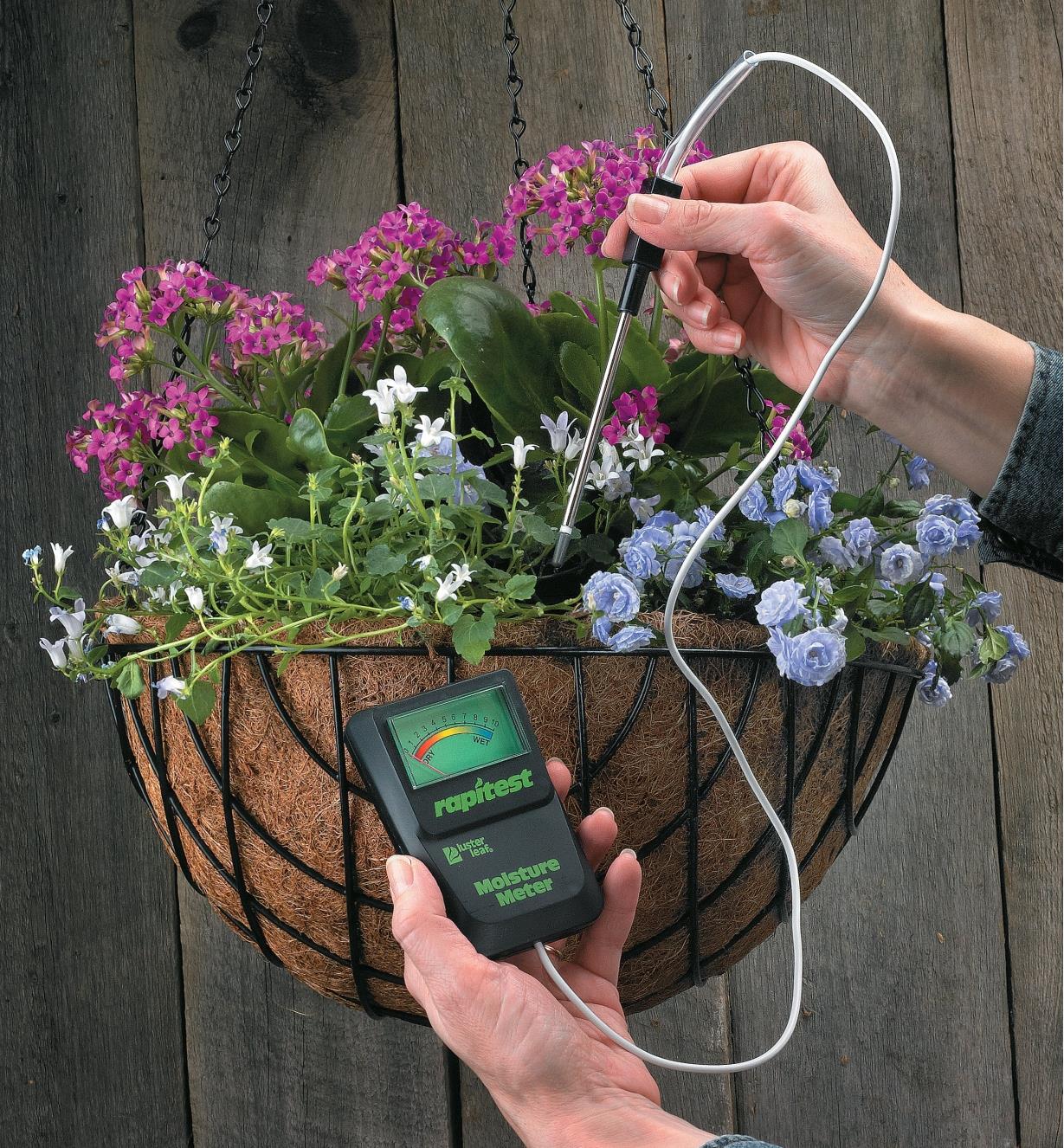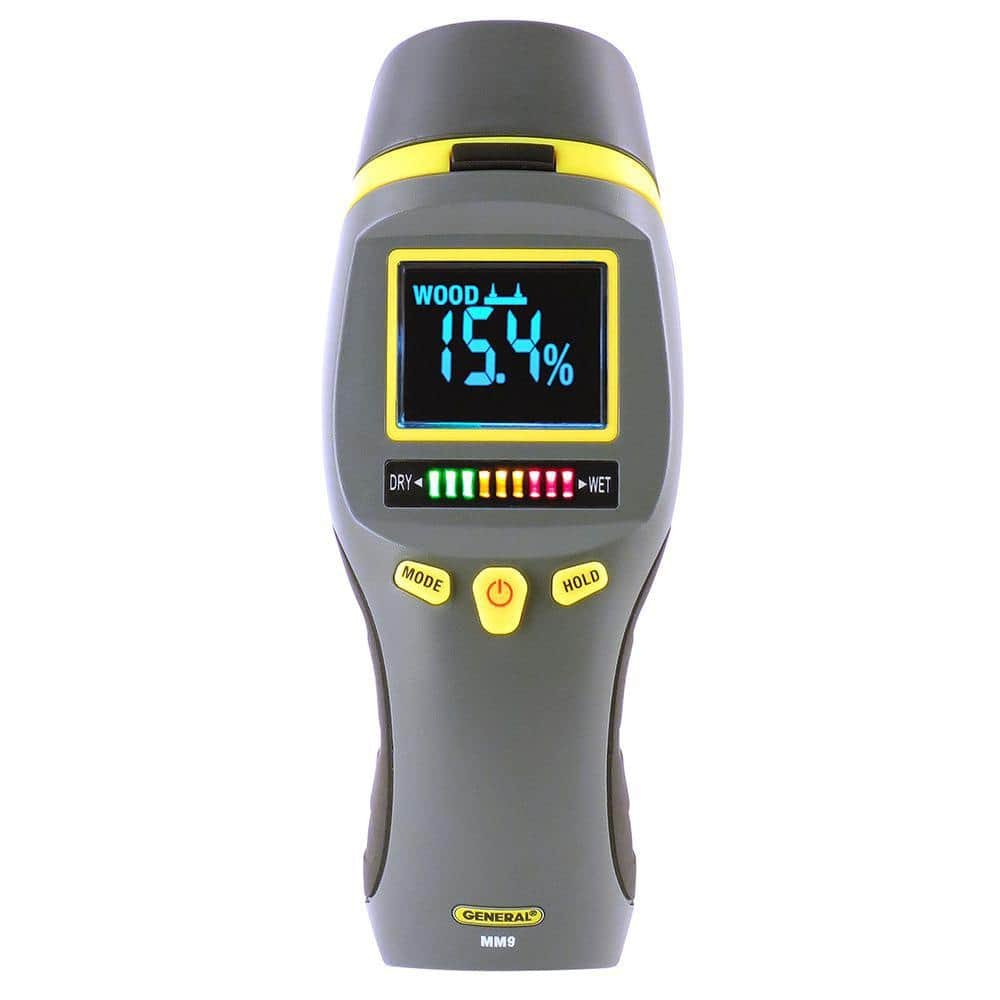Why Every Home Owner Needs a Moisture Meter: Key Advantages and Features
The Ultimate Guide to Moisture Meters: A Comprehensive Overview and Exactly How They Can Save You Money
In the realm of building upkeep, building, and various sectors, the relevance of properly determining moisture degrees can not be overemphasized. Wetness meters function as essential tools in identifying and keeping track of moisture material in materials, aiding in stopping expensive problems and ensuring the top quality of items. Recognizing the subtleties of different kinds of dampness meters, their applications, and the possible cost-saving benefits they provide can be a game-changer for professionals and services alike. Finding exactly how these tools can not just improve processes yet likewise contribute to economic savings is a trip worth beginning on.
Kinds Of Moisture Meters
Different sorts of wetness meters are available for various applications in different industries. One typical type is the pin-type wetness meter, which gauges the electric resistance between two pins put right into a material. This type is ideal for wood, drywall, and other building materials. Pinless dampness meters, on the other hand, usage electromagnetic sensing unit plates to scan a bigger location without causing damage to the product's surface area. These meters are suitable for rapidly assessing dampness degrees in huge areas such as floorings and wall surfaces.
Furthermore, there are also specialty dampness meters developed for specific products like hay, grain, or dirt. These meters provide accurate dampness readings tailored to the distinct properties of the material being evaluated. Infrared wetness meters measure the thermal buildings of a material to identify its dampness web content non-invasively, making them helpful for applications where pin or pinless meters might not be suitable. Comprehending the various types of wetness meters available can help sectors pick one of the most suitable device for their details dampness dimension needs.

Advantages of Making Use Of Moisture Meters

Moreover, using moisture meters can result in raised energy efficiency. By identifying locations with high wetness degrees, such as leaks or poor insulation, adjustments can be made to improve energy conservation and minimize energy costs. In farming settings, wetness meters play a critical function in enhancing plant yields by making it possible for farmers to check soil wetness levels and make educated watering choices. Overall, the advantages of using moisture meters span throughout various sectors, offering cost-effective solutions and advertising far better quality control techniques.
Exactly How to Choose the Right Moisture Meter
Selecting the appropriate wetness meter entails considering vital factors such as product compatibility, dimension array, and calibration precision. When selecting a dampness meter, it's vital to make certain that the meter appropriates for the details product you will be testing. Various products have varying go to the website electric homes that can influence moisture analyses, so picking a meter designed for your material is essential for accurate results. In addition, take into consideration the measurement series of the moisture meter. Ensure that the meter can find moisture levels within the array needed for your applications. Calibration precision is one more essential element to keep in mind (Moisture Meter). Go with a wetness meter with reliable calibration to make sure constant and exact analyses. Some meters may call for periodic calibration changes, so recognizing the calibration process is essential. By thoroughly examining these elements, you can pick a wetness meter that satisfies your requirements and gives precise moisture measurements for your projects.
Correct Techniques for Moisture Meter Use
To ensure exact dampness readings and make best use of the performance of a dampness meter, using correct methods is important. When utilizing a pin-type moisture meter, place the pins or probes right into the product being checked until they make full call. Ensure the pins are perpendicular to the surface area to get the most accurate analysis. For pinless dampness meters, hold the tool flat versus the material and relocate gradually to cover the whole location for a typical reading. It's essential to calibrate the moisture meter according to the material being evaluated to boost precision. Take several analyses throughout the surface area and ordinary them out for a much more reputable result. In addition, make certain that the product being examined is accommodated to the atmosphere to avoid skewed analyses. Routine maintenance of the dampness meter, such as cleaning up the pins or sensing unit, is also vital to ensure accurate and consistent analyses. By complying with these proper strategies, customers can depend on their dampness meter to offer reliable moisture levels, helping in stopping pricey damage or guaranteeing quality in numerous applications.

Price Financial Savings With Moisture Meter Applications
Just how can the strategic utilization of wetness meters lead to significant expense Find Out More savings throughout different sectors? In the farming sector, dampness meters aid in establishing the optimum time for harvesting crops, preventing over-drying or excess moisture that can impact the last item's top quality.

Moreover, in the food processing industry, moisture meters are important for keeping track of product high quality and guaranteeing compliance with safety policies. By precisely gauging dampness web content in food, manufacturers can prevent perishing, maintain quality, and lower waste, causing substantial navigate to this site expense savings. In general, the strategic application of dampness meters is a useful financial investment that can cause considerable cost decreases and enhanced efficiency throughout numerous sectors.
Verdict
Finally, wetness meters are valuable devices for identifying and determining wetness levels in various products. By utilizing the appropriate wetness meter and following correct methods, users can successfully avoid pricey damages triggered by excess wetness. Purchasing a high quality moisture meter can cause substantial expense savings in the lengthy run by identifying prospective issues early and enabling timely remediation. Ultimately, wetness meters are important tools for maintaining the stability and long life of products and frameworks.
Moisture meters serve as vital devices in spotting and keeping an eye on moisture material in products, helping in stopping pricey problems and ensuring the quality of products. Infrared wetness meters determine the thermal buildings of a product to determine its wetness content non-invasively, making them beneficial for applications where pin or pinless meters might not be ideal.Wetness meters use very useful benefits in properly analyzing and checking wetness levels in diverse products and settings. In farming settings, dampness meters play a vital role in enhancing plant yields by allowing farmers to keep an eye on soil moisture degrees and make informed irrigation choices.In final thought, wetness meters are beneficial tools for detecting and measuring moisture degrees in various materials.